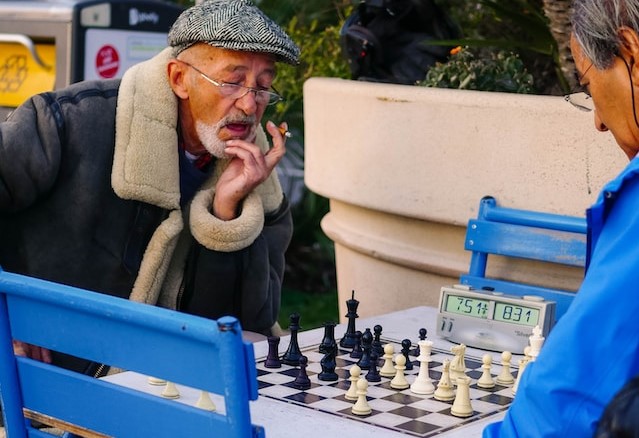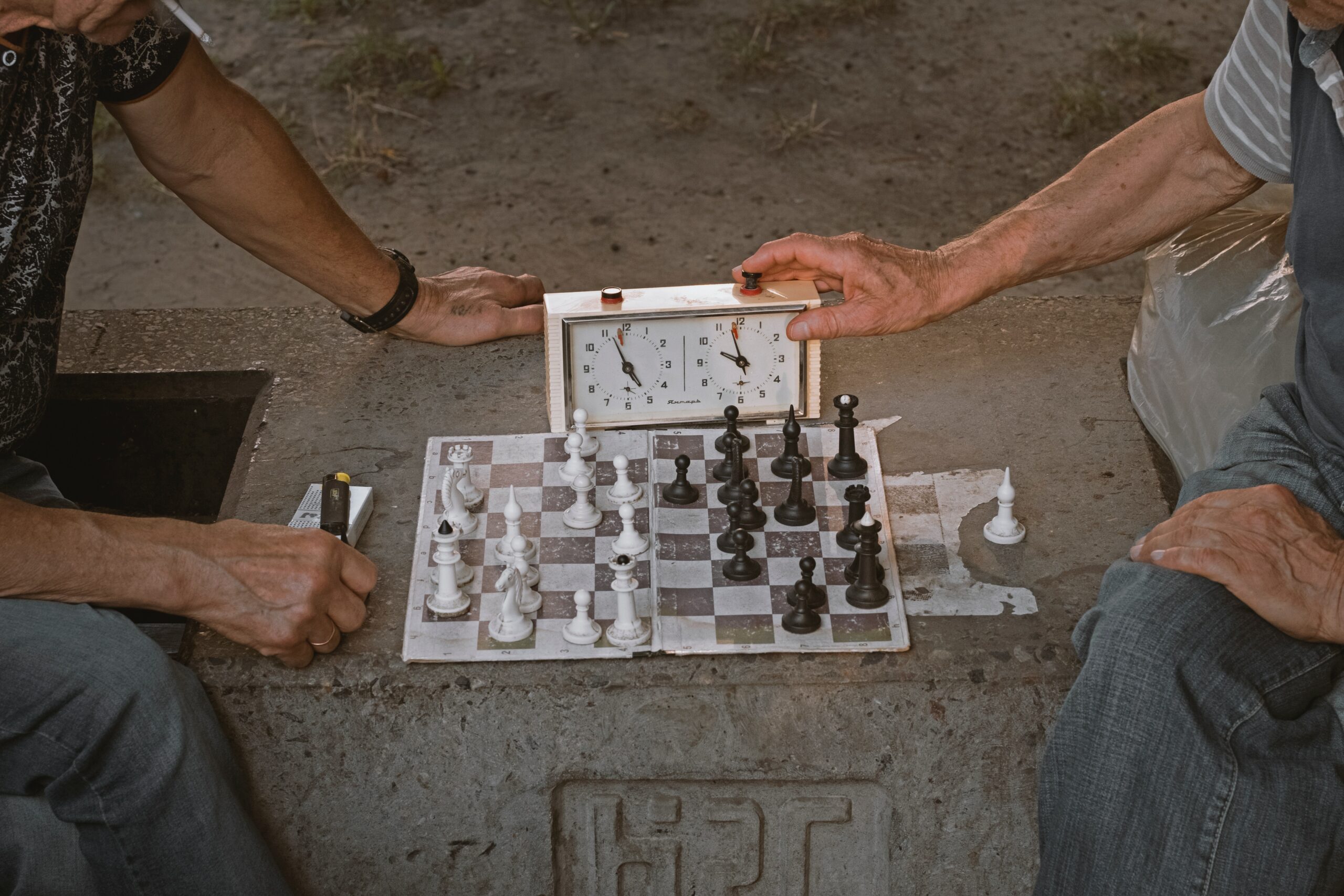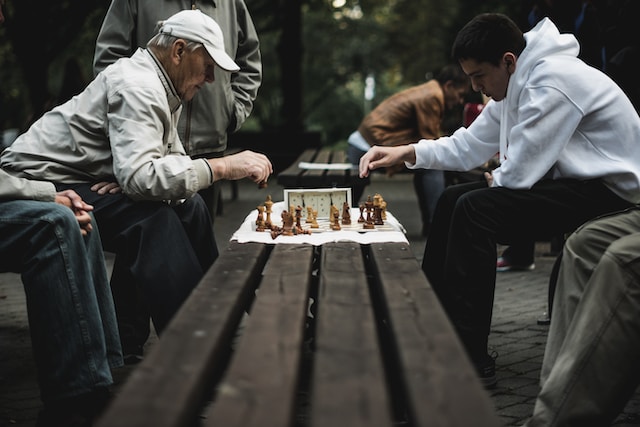In the intense and exhilarating world of chess, where time is of the essence, a unique and essential instrument comes into play: the chess clock. A game that demands mental agility and strategic prowess, chess has long captivated players of all skill levels.
However, the incorporation of a clock adds an extra layer of excitement and urgency, introducing a crucial element of time management. The chess clock, with its precision and measured ticking, brings a sense of structure to the game, dictating the pace at which moves are made. In this exploration, we will delve into the purpose and significance of the chess clock, uncovering the strategic implications and psychological dynamics it brings to the table.
From its origins to its modern-day usage, the chess clock stands as an emblem of the game’s competitive spirit and challenges players to make decisions under pressure. So, let us embark on a journey to understand the clock’s role in chess and how it enhances the thrill and intensity of this timeless battle of minds.
What is the Purpose of a Chess Clock?
The purpose of a chess clock is to introduce a time element into the game and add a sense of urgency and strategic decision-making. Chess is a game where players must carefully consider their moves, analyze positions, and plan their strategies.
The chess clock adds an additional dimension by imposing time constraints on players, forcing them to make decisions within a limited timeframe. The chess clock serves as a tool to measure and allocate time, ensuring fair play and preventing games from becoming excessively long.

Why is Time Management Critical in Chess?
Time management is of utmost importance in chess as it directly affects a player’s ability to think, evaluate positions, and make informed moves. In chess, every move counts, and effective time management allows players to allocate their limited resources wisely.
By managing the available time, players can strike a balance between making precise, well-calculated moves and maintaining a reasonable pace. Poor time management can lead to rushed decisions, oversights, and ultimately, inferior gameplay. Strategic time management enables players to optimize their thinking time, maintain control over the game’s tempo, and utilize the clock as a strategic resource.
How Does a Chess Clock Work?
A chess clock consists of two separate time-tracking mechanisms, one for each player. When a player makes a move, they press a button on their side of the clock, which stops their timer and starts the opponent’s timer simultaneously. The player’s total thinking time is reduced by the amount of time consumed for each move.
Different types of chess clocks offer various time control settings, such as increment (adding a fixed amount of time after each move) or delay (pausing the opponent’s clock for a set duration before starting their time). The clock’s display indicates each player’s remaining time, providing a visual representation of the time pressure and the progress of the game.

Are Chess Clocks Used in All Types of Chess Games?
Chess clocks are commonly used in various types of chess games, particularly in competitive and tournament settings. They add an essential competitive element, ensuring fairness and preventing games from extending indefinitely. Chess clocks are typically employed in standard time controls, rapid chess, blitz chess, and bullet chess formats. However, in casual play or friendly games, players may choose not to use a clock to allow for a more relaxed pace and an unhurried experience.
What Happens When a Player Runs Out of Time?
If a player’s time runs out before they make their move within the allotted time control, they are said to have “flagged” or “lost on time.” When a player loses on time, their opponent is declared the winner, regardless of the position on the board. Running out of time is considered a loss, emphasizing the significance of time management in chess. However, if a player manages to checkmate their opponent before running out of time, they win the game regardless of their remaining time.
Can Chess Clocks Influence Strategy and Decision-Making?
Chess clocks can significantly influence strategy and decision-making in the game. The presence of a time constraint adds pressure and introduces a psychological element to the gameplay. Players must adapt their thinking process to work within the available time, prioritize moves, and consider trade-offs efficiently.
The time pressure can lead to more dynamic and decisive play, as players strive to optimize their moves within the limited timeframe. Additionally, players can use the clock strategically, managing their time to induce time trouble in their opponents or to preserve their own thinking time for critical positions. The chess clock, therefore, becomes a tactical tool that shapes the course of the game and influences strategic choices.
How Do Chess Clocks Impact Tournament Play?
Chess clocks have a significant impact on tournament play, shaping the dynamics and pace of the games. By imposing time limits, chess clocks ensure that games progress within a reasonable timeframe, allowing for efficient tournament organization. Chess players must develop their time management skills and adapt to playing under time pressure.
The presence of a clock adds an element of urgency and strategic decision-making, as players must balance their desire for accurate moves with the need to make them within the allotted time. Chess clocks in tournaments help maintain discipline, fairness, and adherence to the scheduled rounds, ensuring a smooth and timely progression of the event.
| Question | Answer | Example |
|---|---|---|
| Purpose of Chess Clocks | Chess clocks regulate the time each player has to make their moves, adding an element of urgency and fairness to the game. | Ensures equal time distribution between players. |
| Importance of Time Management | Effective time management allows players to strategize, evaluate positions, and make decisions within the allotted time. | Running out of time can result in a loss, regardless of position. |
| The functionality of Chess Clocks | Chess clocks consist of two connected timers that alternate between each player, measuring their thinking time. | Player A’s time starts counting down after pressing the clock. |
| Usage in Different Chess Games | Chess clocks are commonly used in tournament play, speed chess (rapid and blitz), and other competitive formats. | Used in both classical and rapid chess games. |
| Consequences of Time Expiry | When a player’s time runs out, they usually lose the game, unless their opponent does not have sufficient material to win. | A player loses on time with a king and a knight against a lone king. |
Are There Different Types of Chess Clocks?
Yes, there are different types of chess clocks available. Traditional analog clocks consist of two independent mechanical time-tracking mechanisms. Digital clocks have become more popular and offer additional features such as preset time controls, time increments, and easy programmability.
Some clocks have larger displays for improved visibility, while others come with added functionalities like move counters, multiple time control settings, and game timers. The variety of chess clocks available allows players to choose the type that suits their preferences and the requirements of the game or tournament.
What Are the Standard Time Control Formats in Chess?
Chess tournaments typically follow standardized time control formats to ensure consistency and fairness. The most common formats include classical time controls, which often provide several hours for each player to complete their moves. Rapid chess time controls offer shorter time limits, usually ranging from 10 to 60 minutes per player.
Blitz chess is even faster, with time limits of 5 minutes or less. Bullet chess pushes the limits further, with extremely short time controls of 1 minute or less per player. These standardized time control formats cater to different preferences and playing styles, providing players with diverse options for competitive play.

How Does Incremental Time Control Work?
Incremental time control, also known as time delay or time bonus, is a variation of time control where each player receives a set amount of additional time after making their move. For example, if the time control is 3 minutes with a 2-second increment, every move made by a player would add 2 seconds to their remaining time.
This ensures that players always have a minimum amount of time to consider each move, even if they have limited time remaining on their clock. Incremental time control promotes more thoughtful play and reduces the likelihood of players running out of time in complex positions.
Do Chess Clocks Enhance Fairness in Competitive Play?
Chess clocks play a crucial role in enhancing fairness in competitive play. By imposing time limits, they prevent players from indefinitely prolonging the game or excessively consuming their opponent’s time. The presence of a clock ensures that each player has an equal opportunity to think and act within the agreed time control.
Chess clocks discourage time-related misconduct and promote the ethical play. They ensure that players adhere to the established rules and time allocations, fostering a fair and level playing field where strategic decisions are made within the constraints of time management.
How Can Chess Clocks Intensify the Excitement of Chess?
Chess clocks add an extra layer of excitement and intensity to the game. The ticking sound, the sight of the time rapidly decreasing, and the awareness of impending time pressure can evoke a sense of urgency and elevate adrenaline levels during play. The limited time creates a thrilling atmosphere, forcing players to think quickly and make crucial decisions under the pressure of time constraints.
Chess clocks often lead to dramatic moments, where players must navigate complex positions, evaluate multiple possibilities, and execute moves with confidence and precision. The presence of a clock can heighten the excitement, suspense, and strategic battles that unfold on the chessboard, making every move and second count.
Wrapping Up
The chess clock, a seemingly simple device, holds a profound impact on the game of chess. Its purpose extends far beyond mere timekeeping, serving as a catalyst for strategic decision-making and adding a thrilling dimension of urgency to each move.
Throughout history, the chess clock has evolved into an integral component of competitive play, forcing players to think swiftly, balance their time allocation, and make calculated choices under pressure. It introduces a sense of discipline and structure, mirroring real-world scenarios where time is a precious resource. The chess clock’s influence reaches beyond the mechanics of the game, delving into the realms of psychology, stamina, and the art of maintaining composure in critical moments.
Whether it is the classic analog clock or the modern digital counterpart, the chess clock symbolizes the relentless passage of time and the need for efficiency in the face of intellectual challenges. So, as players engage in the battle of minds across the chessboard, the ticking of the clock serves as a constant reminder of the exhilarating and time-bound nature of this beloved game.




